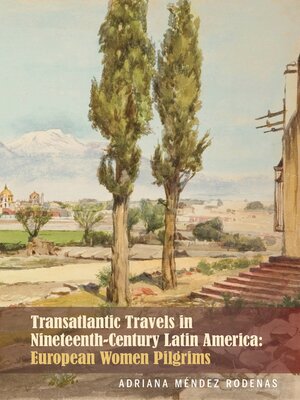Transatlantic Travels in Nineteenth-Century Latin America
ebook ∣ European Women Pilgrims · Bucknell Studies in Latin American Literature and Theory
By Adriana Méndez Rodenas

Sign up to save your library
With an OverDrive account, you can save your favorite libraries for at-a-glance information about availability. Find out more about OverDrive accounts.
Find this title in Libby, the library reading app by OverDrive.



Search for a digital library with this title
Title found at these libraries:
| Library Name | Distance |
|---|---|
| Loading... |
Transatlantic Travels in Nineteenth-Century Latin America: European Women Pilgrims retraces the steps of five intrepid "lady travelers" who ventured into the geography of the New World—Mexico, the Southern Cone, Brazil, and the Caribbean—at a crucial historical juncture, the period of political anarchy following the break from Spain and the rise of modernity at the turn of the twentieth century. Traveling as historians, social critics, ethnographers, and artists, Frances Erskine Inglis (1806–82), Maria Graham (1785–1842), Flora Tristan (1803–44), Fredrika Bremer (1801–65), and Adela Breton (1849–1923) reshaped the map of nineteenth-century Latin America. Organized by themes rather than by individual authors, this book examines European women's travels as a spectrum of narrative discourses, ranging from natural history, history, and ethnography. Women's social condition becomes a focal point of their travels. By combining diverse genres and perspectives, women's travel writing ushers a new vision of post-independence societies. The trope of pilgrimage conditions the female travel experience, which suggests both the meta-end of the journey as well as the broader cultural frame shaping their individual itineraries.







